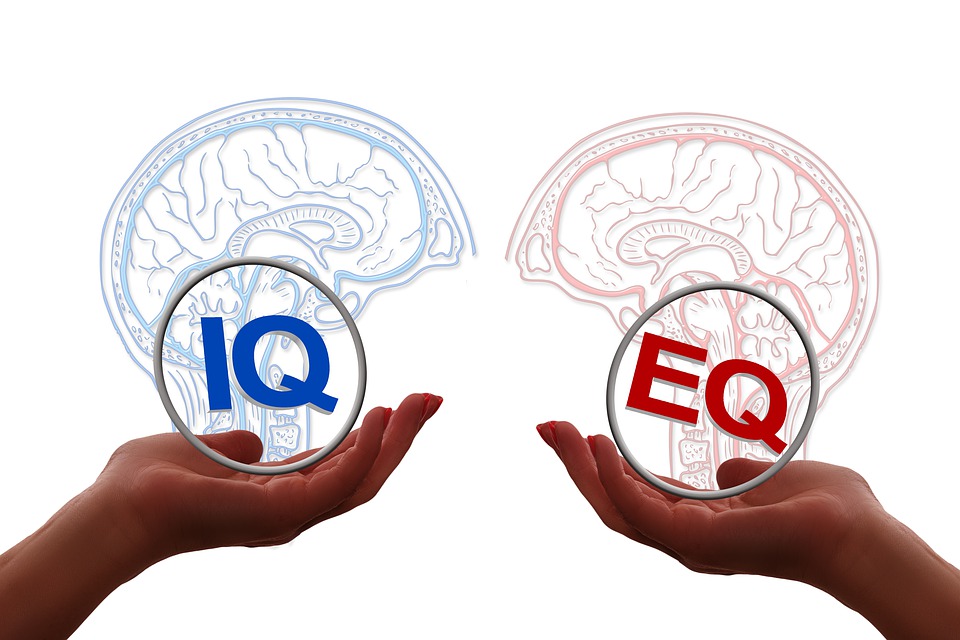
Emotional intelligence — the term does not seem to hold much importance when you have to make strong work decisions. To whatsoever peculiar situation that we may fall into at our workplace, the unconsciously biased decision that we make generally reflects the analytical part of the brain making decisions for us. The confiding notion that resides in everyone's mind is whether to acknowledge the emotional extravaganza that erupts when we ought to make a consequential decision at the workplace. In this article, we will discuss how utilizing workplace intelligence can impact or influence your decision-making process at the workplace.
What is emotional intelligence?
As psychology says, emotions are part of every being and they have an emotionally inclined aspect of decision-making process irrespective of the situation that they are into. Considering emotional-based decisive paradigms at work, employers and employees seldom go acknowledging it and letting it reflect their work in any way. So what exactly is emotional intelligence?
Emotional intelligence, in simpler terms, is the ability of any social being to have an emotionally influenced judgment in almost every situation. But, how well does it impact your work efficiency and another crucial decision-making process at work? Well, emotional intelligence can help enhance work-stability as well as it creates a better understanding between the colleagues. An emotionally intelligent person also has a stronger sense to figure out how to take any action and when.
What are the key traits of an emotionally intelligent person, and how you can be one?
An emotionally intelligent person owns the accreditation to deal and respond to situations that can be of major importance to work as well as to the entire organization. Self-management, one of the key elements of an emotionally intelligent person, is the ability to understand and comprehend situations that tell about one's responsibility to deal with deadlines at work and make proper decisions effectively.
Motivation and empathy are the other two important factors that enable both employees and employers to manage and foster productivity at work. Motivation, an emotion that signifies passion, can be helpful for any employee or employer to manage productivity at work as well as work with greater efficacy and endurance to achieve major goals.
Empathy, on the other hand, is substantially a crucial form of emotion that signifies the importance of valuing other's emotions, especially when it comes to work-related decision making. A person having good emotional intelligence supports and acknowledges other's perspectives even if it doesn't go along with one's judgment.
How effective is being emotionally intelligent in the workplace?
Having a strong emotional intelligence at work and making emotionally biased decisions have proven to work well for creating stronger bonds between the employees as well as employers and employees. A high EQ at the workplace also corresponds to better problem-solving abilities and keeping cool while working under pressure.
According to a study by the Depart of Psychology, UCLA, having a strong approach towards listening, responding, and reacting to constructive criticism has been proven to be an effective measure in symbolically establishing a firm social presence delegating work and influential personality at the workplace. Taking a stand for yourself and resolving conflicts on your terms is another remark that determines how having a better E.Q can boost your persona at the workplace.
How you can improve on being a socially intelligent person?
Staying motivated at work and influencing others to stay motivated is important to groom yourself to become emotionally intelligent. One of the major aspects of being emotionally intelligent is to become self-aware of your emotions and recognize what you need at the present. Research has shown that people with better EQ, has more stability than people with high IQ, and they tend to manage their work efficiently when they are put under pressure.
Being self-aware, and having a sense of responsibility adds major credit to your work performances, and that is what being emotionally intelligent is all about. Practice recognizing your emotions and become aware of every tiny little feeling that makes you aware of your different sides as a whole being. Focusing on your weaknesses and strengths can help you develop better emotional intelligence at the workplace, and it will help you get a broader picture in assessing how to control your emotions given any circumstances.
Related Blogs
9 Ways of Unlocking the Power of Employee Engagement: Driving Success and Productivity in the Workplace
Transforming Payments: Introducing FedNow - The Future of Real-Time Transactions
Related Industries
FDA Compliance
Medical Devices
Clinical Research
Audit Webinar
HR Compliance
Banking and Finance
Hospital and Healthcare
Packaging and Labeling
Accounting, Payroll and Taxation
Food and beverages
Software
Miscellaneous
Pharmaceutical

